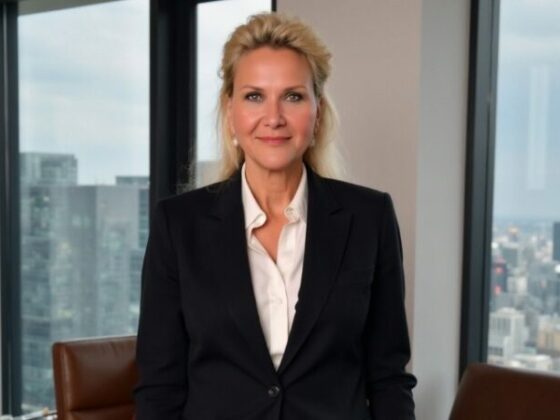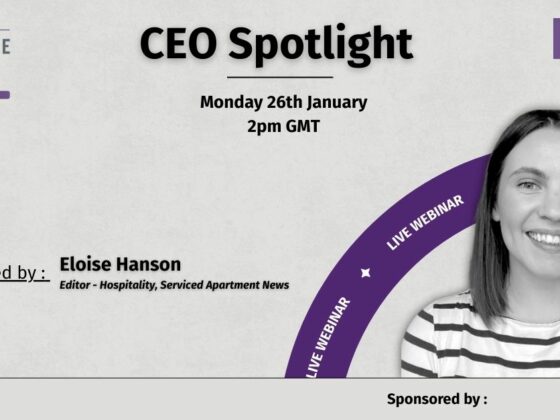
Sam Seigler, Trinity Bridge
Sam Seigler, Managing Director of hospitality executive search specialists Trinity Bridge, shares his insights on what defines successful leadership in the hospitality sector today.
From strategic hiring and evolving leadership models to succession planning and adapting to innovation, Sam discusses the mindset and skills modern hospitality leaders need to thrive in a fast-changing global landscape.
1. In your view, why does hospitality’s recovery really start at the top?
In all industry sectors, leaders set the tone and create the vision. In hospitality, this is even more critical as your product is your people. Providing visible leadership, and having individuals who can engage and motivate the teams that interact with guests on a daily basis, is essential. In uncertain times, it is important to have leaders who can offer clear direction, communicate effectively, and steer the business towards its goals.
2. What do you think the best performing hospitality brands have done differently when it comes to leadership?
I believe some of the best performing luxury hospitality brands take lessons from outside the sector. They understand the fundamentals of great hospitality leadership, but they are also open to learning from other industries and adopting best practice in areas such as training, compensation, and employer branding.
At hotel level, they empower their general managers to make decisions and seek autonomy. They think carefully about retention, how to incentivise, and how to create clear development pathways for top leaders within the business. They also consider bringing in leaders from adjacent sectors to diversify their talent pool.
3. What are the qualities that hospitality companies should be demanding from the modern hospitality leader?
Without question, leaders who put people first. Those who lead from the front, are not overly hierarchical, and who can balance being strategic with being hands on when needed. They give their team the autonomy and accountability they need. This is critical today as the next generation of managers are not solely motivated by salary. You need to create an environment that retains your top talent.
Modern leaders must also embrace innovation and change. The world moves quickly, and adaptability is key – whether in response to geopolitics, technology, or shifts in guest expectations. And although it has always been important, now more than ever, non-owner leaders must display entrepreneurial instincts. They must lead the business as if it were their own, and instil a culture where every guest is treated as the most important guest.
4. Are there any particular roles or leadership capabilities that are now essential but were overlooked five years ago?
People talk a lot about technology and artificial intelligence. Hiring leaders in these areas may not be suitable for every business, but it is critical to have individuals who can understand where and how such developments can impact your operations.
5. Does the hospitality industry understand the long term value of strategic hiring and succession planning, or is reactive hiring still the default?
In some areas, I think the sector still struggles with this. Hospitality is fast paced, and with so many near term challenges, taking a long term view on talent can seem like a luxury. For larger operators, succession planning is easier because of the deep internal talent base, resources to invest in strategic hiring, and greater tolerance for mistakes. For smaller and mid sized hotel companies, with fewer internal candidates and limited resources, it remains a challenge. Often these companies are founder led, and a strong HR director or chief executive is needed to convince them of the value this unlocks.
6. How can operators evolve their leadership approach without losing their core identity?
Take an evidence based approach. Establish your core values and non-negotiables, then listen to your employees and your guests. Understand their needs and shape your leadership approach around this. In founder led businesses, this can be harder as the core identity is so closely linked to the culture and behaviours of the business.
7. What should boards and investors really be demanding from leadership teams right now?
Greater diversity in the talent pool – not just in terms of race and gender, but also background and experience. Leadership teams need to offer a broad range of perspectives. Beyond the usual financial performance, there must also be a clear plan for technology i.e.
- Where and how investment should be made
- Whether artificial intelligence has a role in the business
Cybersecurity – what happened at Harrods is a warning for all luxury brands - Better use of data across all areas – guest experience, employee engagement, and productivity
8. What advice would you give to a hospitality operator unsure about investing in leadership right now?
Whether you are thinking about investing in your current team through training or incentives, or hiring externally, improving leadership quality can deliver the highest overall return for your business.
If you are considering hiring externally, be thoughtful about the recruitment process. Work with search partners who truly understand your market, can represent your brand authentically, and who can also think creatively – sourcing beyond the usual suspects and challenging your assumptions.







